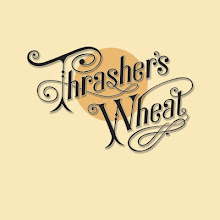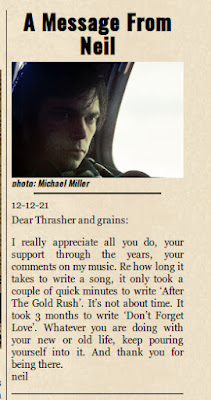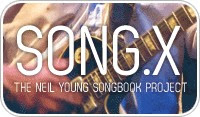"Waging Heavy Peace" Book by Neil Young
#2 on The New York Times Best Sellers
(Details on CONTEST: Win Copy of "Waging Heavy Peace")
With so much Neil Young and Crazy Horse
concert tour info happening, we haven't had much time to devote to the reviews of Neil's new book "Waging Heavy Peace".
First, a little news from
Neil Young 'Waging Heavy Peace' en route to Hollywood Bowl - latimes.com by Randy Lewis:
“Generally speaking, it’s really encouraging,” Young said over the phone of the response to his book so far. “Some of my friends have written personal notes saying that they’ve enjoyed it, and that makes me feel good. That’s the thing that means the most to me, when I hear back from the people I think of as the target audience for the book.”
“Waging Heavy Peace” has been generating positive reviews from literary critics who have praised its non-chronological structure, akin in some ways to Bob Dylan’s impressionistic 2004 memoir “Chronicles: Volume One.” Young’s book is selling strongly, with more than 300,000 copies in print, and it ranks in the Top 5 nonfiction bestsellers nationally by the Los Angeles Times, the New York Times, Wall Street Journal and several other publications.
...
“For guys like Bob and me,” Young said nonchalantly (as if there is a large contingent of people on the same musical plane as Dylan and Young), “this is probably the only way to do it and keep it interesting.... I never really wanted to write it in the regular way from beginning to end. That’s not the way my brain works. That would make it into a job, and I’m not looking for another job.”
...
Young is continuing to write prose and is working on another nonfiction book in addition to pondering a third in which he might delve into fiction. “I think it’d be fun to create some characters and see what happens with them,” he said.
So the book is a best seller and is being hailed by many fans as a wonderful read. We include ourselves in that category.
Most reviews thus far contain descriptions like "compelling, non-linear, stream of consciousness, repetitive, very cars/trains/audio equipment focused, not a tell all, rambling, goofy, sentimental, moving", etc.
All of which is true. But for us -- and most readers it seems -- reading the book "Waging Heavy Peace" makes you feel like Neil is having a conversation with you. Digressing, jumping to the past, to the future, right back to the here and now present.
And as strange -- or simple -- as that might sound, it comes across as highly original in this day and age of ghost writers and high drama. The book contains quite a few eye openers and honest moments undisclosed before yet never ventures into what the industry loves to call "juicy tidbits" (translation - celebrity gossip).
And good for Neil not to sell his soul to sell some books.
All of which brings us to this rather peculiar review from
Neil Young's Memoir, "Waging Heavy Peace": Writing Without Reading : The New Yorker by Alec Wilkinson. First, if you're not familiar with
The New Yorker, it is a rather renowned publication for the literati in the arts and publishing world.
That said, it seems that Alec Wilkinson's review emanates from an interview he conducted with Neil Young some time ago (Wilkinson does not specify when or where published?). The
The New Yorker review begins with the following: "[Neil Young] is the only artist I have ever encountered who is proud of not reading."
Now we did find that somewhat startling but maybe not surprising. It turns out that Wilkinson asked Neil what books he read and he said he didn't read books, "Reading would distract him from writing songs, he once told me, meaning interfere with whatever mechanism supplied him with his melodies and lyrics."
Wilkinson goes on to explain that the weakness of both "Waging Heavy Peace" and Young's songs is because of his lack of exposure to great literature.
On the ride Young told me that he didn’t read, but I might have guessed anyway.
He was a reserved and slightly grave figure, and talking with him was like being trapped with someone whose mind had no reach. He could only talk about what he felt or had seen or thought. I couldn’t respond to one of his remarks by raising an idea it had made me think of and have him make some connection to some other thought and then respond to that. A part of him seemed to have been arrested at a very early age. I am, of course, accustomed to meeting people I don’t feel able to talk to, or who aren’t interested in talking to me.
I hadn’t expected, though, to find that someone whose work had ranged so widely had no curiosity about such an obvious possibility for enlarging the imagination, or to have been so indifferent to it. He seemed like someone who had worked at the same factory for years and years without ever wondering what lay to the left or right of the gates. Finally, I asked who he liked to read, and he said he didn’t read, and I thought, Bingo.
Of course, we can only imagine where Neil's career would be today if only he had read "Tolstoy or Dickens or Chekhov or Kierkegaard" like Mr. Wilkinson. Or the "poems of writers such as Philip Levine or William Butler Yeats or the prose of a writer such as Isak Dinesen."
If only. Maybe "Pocahontas" would sound like this...
Aurora borealis
The astronomical phenomenon of electric charged particles
Canoe paddles stroke deeply in the water
In a long and expedient exit
From the European settlers to the bountiful agriculture yields
And the country we've yet to witness.
Yet. Yet, Wilkinson concludes the review with the ultimate complement:
Thelonius Monk said, The man is a genius who is most himself, and Young has exemplified the remark. His thinking is restricted and sheltered, however, and his writing is aimless.
say what?
Read
The New Yorker review yourself and let us know what you thought.
And can anyone point out where Neil says or indicates that he is "proud of not reading."? We think Wilkinson has made a huge leap and mis-characterized an impression.
UPDATE:
Apparently, we were not the only one who found
The New Yorker review by Alec Wilkinson to be off target.
From
Why Neil Young Doesn't Need To Be Well-Read by Matthew Perpetua:
A review of Neil Young's new memoir Waging Heavy Piece by Alec Wilkinson in The New Yorker argues that the veteran rocker's vast body of work would be improved if he had been exposed to "examples of language carrying complicated thoughts or feelings, the way they are carried in the poems of writers such as Philip Levine or William Butler Yeats or the prose of a writer such as Isak Dinesen." It's a gallingly condescending take on Young, who Wilkinson presents as some sort of simple-minded artistic savant. He describes his words as "insipid and sentimental," and notes that Bob Dylan's music and memoirs are far more cerebral and writerly, as if that was the most important criteria to judge a musician and their work.
Much of Wilkinson's review is really a love letter to books, and he says that a lot of the appeal of reading for him comes down to it enabling the reader to "enter intimately into minds remote in time or place from my own." He argues that music does not "easily embody complex ideas," and that's true in the sense that it's a terrible way to convey pure information or didactic arguments. There are absolutely ideas and arguments that are, as he says, better suited to fiction and prose, but music is amazing because it's so effective in communicating thoughts and emotions, particularly knotty, ambiguous feelings that are very difficult to put into words. But really, it's sort of ridiculous to pit these very different modes of expression against each other – all art forms have their strengths and weaknesses, and you can easily fault novels and poetry for their relative lack of immediacy and concision.
Wilkinson can only consider Young in light of his biases about literature and hangups about what an intelligent artist should be like. He says he reads to gain access to thoughts and experiences that are not his own, yet recoils when he does not see a reflection of himself in Young. He recognizes the value of Young's music, but dismisses it as "artless." It's aggravating, because it's all just an ill-considered bias in favor of the written word, and stubborn refusal to acknowledge that it takes just as much (if not more!) intelligence to convey - and decode - complex thoughts expressed through art forms that rely so much on intuition.
Lastly, don't forget
CONTEST: Win "Waging Heavy Peace" Book by Neil Young.
Labels: book, neil young, review, waging heavy peace











 Neil Young & Crazy Horse
Neil Young & Crazy Horse


























































 Human Highway
Human Highway

















 Concert Review of the Moment
Concert Review of the Moment





 This Land is My Land
This Land is My Land

 FREEDOM In A New Year
FREEDOM In A New Year









 *Thanks Neil!*
*Thanks Neil!*




![[EFC Blue Ribbon - Free Speech Online]](http://www.thrasherswheat.org/gifs/free-speech.gif)











 The Unbearable Lightness of Being Neil Young
The Unbearable Lightness of Being Neil Young Pardon My Heart
Pardon My Heart



 "We're The Ones
"We're The Ones  Thanks for Supporting Thrasher's Wheat!
Thanks for Supporting Thrasher's Wheat!




 This blog
This blog 
 (... he didn't kill himself either...)
#AaronDidntKillHimself
(... he didn't kill himself either...)
#AaronDidntKillHimself








































































 Neil Young's Moon Songs
Neil Young's Moon Songs




 Civic Duty Is Not Terrorism
Civic Duty Is Not Terrorism Orwell (and Grandpa) Was Right
Orwell (and Grandpa) Was Right


 What's So Funny About
What's So Funny About 


